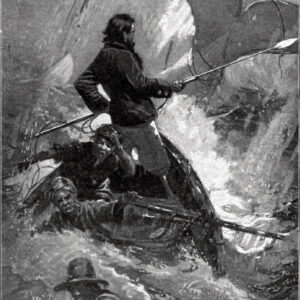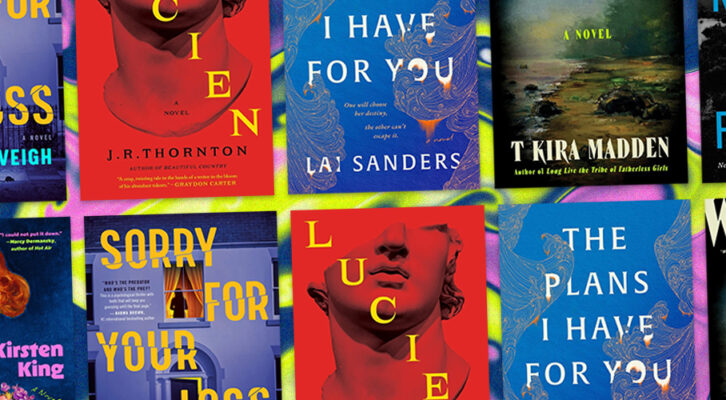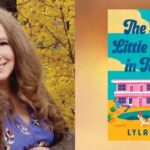
Garth Greenwell on Sex, Passion, and the Queer Body
In Conversation with the Author of What Belongs to You
Garth Greenwell’s debut novel, What Belongs to You, is a beautifully written exploration of sex, passion, loneliness and seeking a sense of belonging. Told in three sections, the novel is narrated by an unnamed American teacher living in Bulgaria. He meets a male prostitute in a bathroom on the first page—the rest of the novel investigates the complicated relationship and emotions that follow. Greenwell fans will recognize the first section, which is a revised version of his 2011 Miami University Press Novel Prize-winning Mitko. I asked Greenwell about his writing habits, the current state of gay literature and what helped shape What Belongs to You.
Adam Vitcavage: I love starting with the genesis of the idea that leads to a novel. This time, however, I want to start by talking about your life, mostly because it’s rather intoxicating. What’s the abridged autobiography of your academic and literary career? How did you become who you are today?
Garth Greenwell: My life has had a lot of fits and starts. I’m from Kentucky, and until I was fourteen felt pretty lost as a queer kid without any distinctions. That year, though, I joined the choir at my high school–mainly because I wanted an easy class. The teacher heard something in my voice and started giving me voice lessons for free after school. He was the first adult to make me feel like my life had value, like I might have a future outside of a place where I felt it was nearly impossible to live.
Music became my first training in art, and it allowed me to escape from Kentucky. I went to the Interlochen Arts Academy and then to the Eastman School of Music. As a junior, I took a course in poetry with James Longenbach, and it led me to leave Eastman and pursue a degree in literature at Purchase College, SUNY. I went from there to Washington University in St. Louis, where I did an MFA in poetry, and after that I spent three years in a PhD program at Harvard.
When I tell the story of my life this way, it seems like I’m really good at quitting things. I guess I am. I left Harvard half way through my degree and started teaching high school English, first in Ann Arbor and then in Sofia, Bulgaria. In 2013 I left high school teaching to do a fiction MFA at the Iowa Writers’ Workshop, which I finished in May.
AV: Was there a piece of advice or a lesson at Iowa that changed who Garth was as a writer before and after the workshop?
GG: I don’t think there was, or nothing particular I could point to. Iowa was wonderful, an extraordinary privilege, and I met writers there I’ll read for the rest of my life. Being accepted to the program was a stroke of extraordinary luck. I’ll be grateful to Iowa forever.
AV: Who are some of the writers you met at Iowa who inspire you and think more people should read?
GG: The Iowa Writers’ Workshop is just one of the writing programs in Iowa City. Another is the Creative Writing MFA in Spanish. Horacio Castellanos Moya is the fiction professor in that program. He’s one of the most important living writers in Spanish, but not enough people in the US know about him-–despite the fantastic translations of his work done by Katherine Silver and published by New Directions. Many of my fellow students in the workshop didn’t know that he was in Iowa until Bennett Sims taught a course on “Bernhard and his Heirs” and Moya came to speak to the class. The professor of poetry in that program is the Spanish poet Luis Muñoz, another writer whose importance is taken for granted in the Spanish-speaking world, but whose work is not well known in English. I’d say more about his brilliant poems, but I can’t pretend to be objective: he’s my boyfriend.
Among my colleagues in the program, there are at least a dozen writers who will soon be on everyone’s shelves. I’ll pick just three who are finishing their books soon: The brilliant Zimbabwean novelist Novuyo Rosa Tshuma writes with an equal commitment to almost Joycean formal inventiveness and to political conscience, and the result is absolutely thrilling. Jamel Brinkley’s stories, which have already appeared in A Public Space, achieve a psychological penetration that inspires and cows me, as does the grace and emotional impact of his sentences. And D. Wystan Owen, whose work has also been in A Public Space (just as an aside, I’m not sure there’s a better place to go looking for new writers to love), writes exquisite, apparently quiet stories that lodge somewhere in my chest and keep detonating–loudly, devastatingly–again and again. I haven’t been in workshop with any of those writers for over a year now, and their work still accompanies me everywhere. They’ve become permanent parts of my canon.
AV: Your book opens rather erotically. So I just want to say two words and you just say whatever you want with as much detail or brevity as you’d like: sex and passion.
GG: Our culture despises the queer body. I want to write the queer body, the queer sexual body, in a way that cherishes it and is responsive to its real value, which is inexhaustible, like all human value.
AV: Do you consider queer literature a genre? Or do you consider it literature that happens to be about LGBT people?
GG: I do think there is a tradition of queer writing, by which I mean a line of writers in conversation with other writers, which is all tradition is. I think there are aesthetic modes that have been coded as queer and claimed by queers. That conversation and those modes are necessary and rich. All artists have allegiances. These are mine.
AV: Similarly, do you consider yourself a “gay” writer?
GG: Yes. But without quotation marks.
AV: When I was doing a lot of musician interviews, I became fairly aware that critics always feel the need to say “female-fronted” band. Like it’s an anomaly. Do you ever feel that people put too much focus on gay writers’ (or any profession for that matter) sexual orientation?
GG: I think this is always a fraught issue, and there’s no way to ask the question that will please everyone. Some writers don’t want to be thought of as gay writers, for a variety of reasons, and I don’t think anyone should place demands on others’ identifications. I will say, though, that formulations like “This is a book about two men in a relationship, but it says universal things about love, etc,” seem wrong to me, even if they’re necessary. We live in a culture where reviewers who want to encourage readers to approach work by minority writers (and bless them, each and every one) need to extend invitations that can seem to conjure away difference. The word “universal” is that invitation.
The real problem comes when “universal” is preceded by “but.” This is a novel about black lives, but it’s universal; or this is a novel about trans lives, but it’s universal. The problem with this is that it allows the term “universal” to be used in that deeply false way that means straight and white, and very often male. I do believe in the universal impact or resonance of art, of the literary or aesthetic imagination. I believe absolutely in the power of imaginative art to cross difference and the wounds caused by structures of inequity. But it doesn’t do that by erasing difference. I think literature achieves the universal by rooting as deeply as possible into the particular.
I write as a queer man about queer lives for queer readers in a queer aesthetic tradition that I’ve chosen. I’m not writing to explain those lives or make them palatable as part of some political project to sway people whose response to them remains disgust. I don’t mean to dismiss efforts to do that, which have purchased so many freedoms for queer people, though maybe at too great a cost. But it’s not my project.
It’s not despite of, but because I’m writing from that specific position that my book can have whatever resonance it has. I don’t think this is anything special about my book. I think it’s how literature works.
AV: Do you still think there is a stigma about books about gay or lesbian characters?
GG: I think queer books struggle for attention, support, and prestige. I think this is especially true when those books are sexually explicit, when they explore models of life that are not heteronormative, when they tell stories that take place far from the zones of (still very relative) lesbian and gay privilege.
AV: Your ability to structure a sentence is rather intoxicating. The opening page alone has an average sentence length of four lines. And then the entire second (of three) sections is told through one extended paragraph. The writing is very lyrical; how did this style find its way to your pen?
GG: That’s kind of you to say; thank you. I think singing art song and opera for years taught me a certain relationship to language and breath, and especially made me alert to the potential for generating emotion through the suspension of language in time. I do think that the shapes of sentences are as important as their content, and I like writing in which the texture of language is itself emotive.
AV: I teach 11th grade American Literature, and I often debate my peers about the writing process. How do you think writing should be taught? Structured and precise? Loose and creative?
GG: First: hooray for high school teachers. I taught high school for seven years, and no profession is more crucial. I don’t think there’s a single way to teach writing, and I think that there’s a place for assignments that are structured and assignments that are loose. (As in many things, I think variety is key.) That said, I think creative assignments, imaginative assignments, should have a much greater place in high school curricula. My own students did their best writing in these assignments, and also their best reading–when they could think their way creatively into a text they discovered how to think with and through that text in more interesting ways. Analyzing a text means seeing it as a field of choices; creative assignments give students a chance to discover that for themselves.
AV: I’m always fascinated by the writing process itself. Authors have told me they handwrite then type then edit the typed version then so on and so on. Others focus on minute details like word placement in a sentence. How was What Belongs to You written?
GG: When I was teaching high school, I woke up at 4:30 to write for two hours before classes. Writing the novel took more than three years. I wrote it by hand in little spiral-bound notebooks. When I finished each of the book’s three sections, I typed it up and revised before moving on. A crucial step of the writing process happened with my brilliant editor, Mitzi Angel, who worked extremely hard on the book, and made me work hard, too. I’m more grateful to her than I can say.
AV: What about your reading process? What excites you in the literary world today?
GG: I’m excited by so many things in the literary world today. As a critic I try to champion queer voices and literature in translation, especially from the languages I speak (French, Spanish, and Bulgarian). My favorite thing is to try to make a body of work, or a certain tradition of work, available to readers who might not be aware of it. That feels more meaningful to me than a review. I’m less interested in whether I think something is good or bad than I am in trying to understand what’s at stake in a writer’s project.
AV: I’ve read that you’ve had a tough time gaining traction with your next project, so I won’t ask you about that. But I want to know what sort of ideas spark your interest in a subject?
GG: I’m not so much interested in invention as in observation and exploration. For me, writing depends on finding new ways of looking at what surrounds me.
AV: Finally, what are some of the ways you look at your surroundings differently? Do you do it consciously, or is it a subconscious effort?
GG: I’m not sure I fully understand the process. I guess I’d say that the subconscious element comes in my response to a place, which is unwilled: some places, like Bulgaria, say, or Louisville, my hometown, which I visited for the first time in over a decade last May, have a kind of charge for me that I can’t explain. But I do think one can try to make space that allows for a conscious tuning into experience, a ratcheting up of attention. Poets love that quote from Malebranche about attention being the natural prayer of the soul. That seems pretty right to me. Attending to something, looking at it in a way that is imaginatively and emotionally engaged, is a way of bringing yourself to care for it. Or at least that’s the hope that makes art meaningful.
Adam Vitcavage
Adam Vitcavage is a writer and an American literature teacher who lives in a suburb of Phoenix. His work has appeared in Paste Magazine, The Millions and Full Stop. You can follow his daily antics on Twitter at @vitcavage.



















